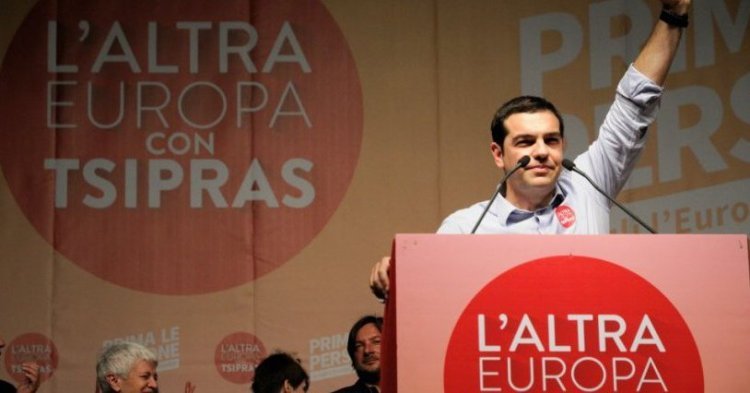The elections in Greece this month gave rise to lots of comments. Many compare wrongly Alexis Tsipras to Jean-Luc Melenchon. The leader of Syriza is not on the same line as the troublemaker of the Left Front, partially because he does not need to radicalize his speech in relation to a left government that does not exist anymore. However, as with Renzi and Hollande before him, the arrival of a leader of the left to re-orientate Europe gives the impression that something will move from a political point of view.
That will not happen. For three reasons.
Why the arrival of Tsipras will not change much in the actual Europe
First, because the future Greek government will be a coalition government. And a large coalition. The future Greek Prime Minister will not be allowed to hold a very strict line. He will inevitably compromise to avoid being overthrown in the Parliament.
Secondly, the Greek economic situation does not put the Greek political leaders in a position of strength. Although crowned with a great victory at the elections the Greek government will not be able to change dramatically its economic policy. It will not be possible for this government led by ‘a true man of the Left’ to boost the economy with plenty of State investments or the hiring of young unemployed people in the public service. They have already announced that they would negotiate a lengthening of debt repayments rather than questioning the debt itself. This is far from revolutionary. A fate like Mitterrand’s as a matter of fact.
Thirdly, because of the function of the European Council. In front of his colleagues in Council, Alexis Tsipras will represent but a lonely voice. Even by allying to those who wish less austerity and more restart, he will have to succeed a common solution with all the world. All the countries being sovereign, it is necessary to succeed to the Council decisions that permit to all to say at the press conference in the end: ‘I have won’…Even the leaders that are in favour of austerity.
The problem is not “austerity Europe” “intergovernmental Europe”
Consequently, the arrival of Tsipras would never have as a consequence the re-orientation of Europe. It is terrible to acknowledge, but it is not new. We often forget that we have already had communist leaders, Eurosceptics or clearly sovereignists at the Council table without this did not end up changing European policies.
It is not a denial of democracy, it is the reality of international negotiations. The European Union is supposed to be more than this. We should be passionate about the European elections like we do for the Greek elections. Besides, that would be more democratic. Indeed, we admit that the Greek scrutiny is decisive and it is the dawn of a great change in Europe. How do we justify that the destiny of 500 million European people is decided by 2% among them?


Follow the comments: |
|
